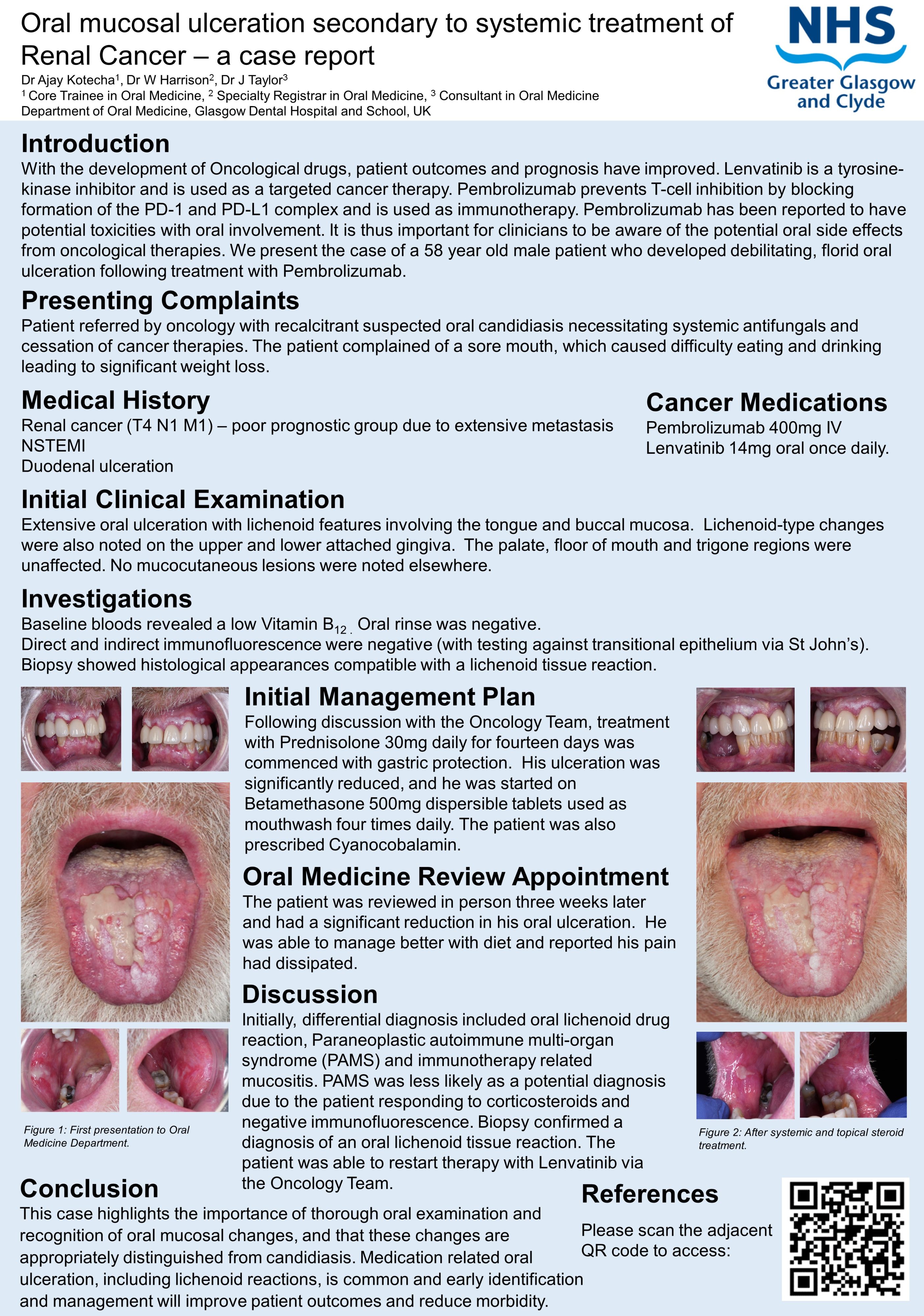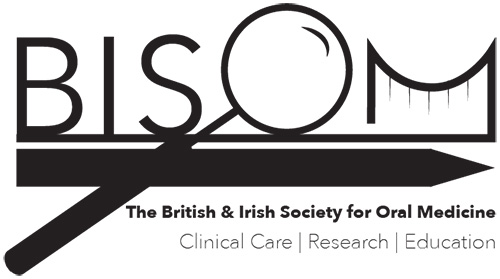Oral mucosal ulceration secondary to systemic treatment of Renal Cancer – a case report
CR13
Ajay Kotecha
Dr Ajay Kotecha, Dr W Harrison, Dr J Taylor
Introduction
Immunotherapy and targeted cancer therapies have revolutionised cancer treatment, however, whilst improving survival rates, toxicities with potential oral involvement continue to be problematic. Pembrolizumab prevents T-cell inhibition by blocking formation of the PD-1 and PD-L1 complex and is used as a cancer immunotherapy. By nature of its mechanism it can cause immune mediated reactions, including oral lichenoid soft tissue reactions. Lenvatinib is a tyrosine-kinase inhibitor and is used as targeted cancer therapy.
Presentation
A 58-year-old male patient with metastatic renal cancer (poor prognostic group) was referred to Oral Medicine by his Oncologist with a persistently painful mouth, presumed to be caused by recalcitrant oral candidiasis. Oncologically, he was being managed on a regimen of Pembrolizumab 400mg IV every six weeks and Lenvatinib 14mg orally once daily, since November 2022, with good clinical response.
He developed oral pain in September 2023 and was treated empirically for oral candidiasis with Nystatin and then intermittent systemic Itraconazole, which required Lenvatinib to be withheld. His oral discomfort led to significant issues with dietary intake and therefore weight loss.
Examination revealed widespread oral ulceration. Differential diagnosis included oral lichenoid drug reaction, PAMS and immunotherapy related mucositis.
Investigations were arranged, including oral rinse and swabs, bloods and biopsies. Treatment with systemic corticosteroids was implemented after discussion with the patient’s Oncology team and General Medical Practitioner.
Discussion
Immunotherapy and targeted cancer therapy oral toxicities have been documented in the literature and can present as a variety of oral presentations. Recognition of these oral side effects is essential to allow for prompt treatment.
Conclusion
This case highlights the need for clinicians to identify changes in the lining of the mouth.
Medication related oral ulceration is common and early identification and management will improve patient outcomes.
References
Elad S, Yarom N, Zadik Y. Immunotherapy-Related Oral Adverse Effects:
Immediate Sequelae, Chronicity and Secondary Cancer. Cancers (Basel). 2023
Sep 28;15(19):4781. doi: 10.3390/cancers15194781. PMID: 37835475;
PMCID: PMC10571987.
Villa A, Kuten-Shorrer M. Pathogenesis of Oral Toxicities Associated with
Targeted Therapy and Immunotherapy. Int J Mol Sci. 2023 May 3;24(9):8188.
doi: 10.3390/ijms24098188. PMID: 37175898; PMCID: PMC10179284.

